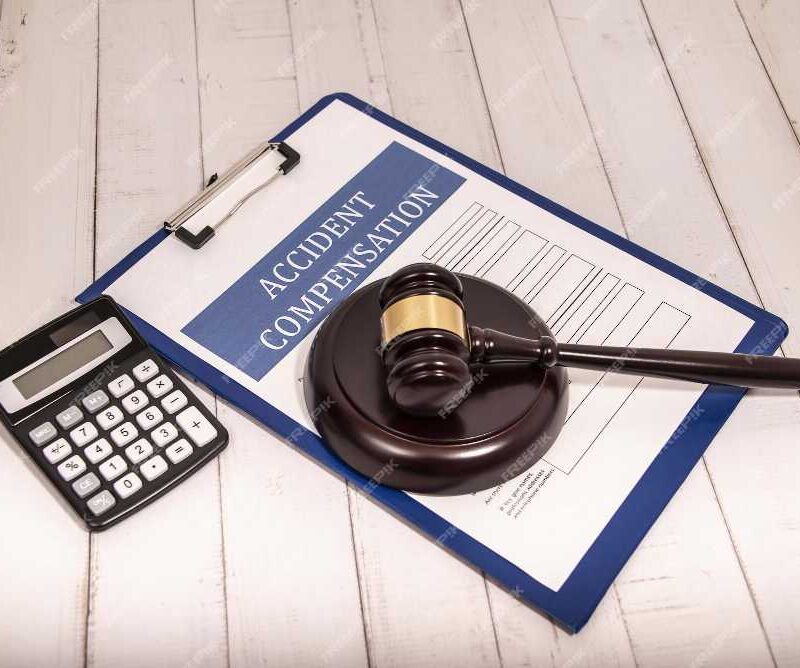When dealing with the aftermath of a personal injury, understanding the nuances of potential financial reimbursement is critical. This guide aims to demystify the different types of personal injury compensation and elucidate who is responsible for paying these damages in the event of a lawsuit.
Types of Personal Injury Compensation
Personal injury compensation generally falls into two broad categories: compensatory damages and punitive damages.
Compensatory Damages
Compensatory damages are intended to financially compensate the victim for the costs associated with their injury. They are typically available in most personal injury cases.
Economic Damages
Also known as special compensatory damages, these cover quantifiable expenses and losses incurred due to the injury. They typically include:
- Medical Costs: These may encompass current and future medical bills, rehabilitation expenses, and costs for prescription medication. To make sure your rights are protected and you can recover from your injuries without paying for medical costs out of your pocket, contact a Hartford Personal Injury Lawyer as soon as possible.
- Property Damage: If your property was damaged during the incident causing your injury, you could be reimbursed for repair and replacement costs.
- Lost Wages and Earning Capacity: Compensation for lost wages refers to the income you’ve lost due to your injuries up to the trial date, as well as potential future earnings.
- Loss of Irreplaceable Items: If a unique item, like a family heirloom, was damaged or destroyed during the incident, you might receive additional compensation.
- Expenses Related to Canceled or Altered Trips: If your injury prevented you from making a planned trip, you could be compensated for related losses.
Non-economic Damages
General compensatory damages address non-quantifiable costs, such as:
- Pain and Suffering: This covers long-term physical discomfort resulting from the injury or its treatment.
- Mental Distress: Emotional distress can range from depression to insomnia to PTSD.
- Loss of Enjoyment of Life: If the injury prevents you from participating in activities that once brought you joy, you may be compensated for this loss.
- Loss of Consortium/Companionship: This typically applies to the spouse of a loved one who died in a personal injury incident.
- Physical Disfigurement and Impairment: If the injury causes permanent physical changes or impairments, the victim might receive compensation.
Punitive Damages
Unlike compensatory damages, punitive damages are intended to penalize the party responsible for causing harm. If the court believes that compensatory damages do not sufficiently deter the defendant from repeating the error, they may impose punitive damages.
Punitive damages are awarded less frequently than compensatory damages, and their imposition is usually contingent upon the defendant’s malicious intent or gross negligence.
Who Pays in a Personal Injury Lawsuit?
The responsibility for paying damages in a personal injury lawsuit generally lies with the party at fault. However, specifics may vary depending on the individual case.
Car Accidents
In car accidents, the at-fault driver is usually responsible for compensating the victim. However, in most cases, the driver’s insurance company handles the payout. Other entities that might be responsible include product manufacturers, the victim’s own insurance company, government entities, and drinking establishments (under dram shop laws).
Truck Accidents
In the event of a truck accident, the truck driver or their employing company is often responsible. However, the maintenance company or the manufacturers of faulty truck parts could also be held liable.
Defective Products
If a person is injured by a defective product, the manufacturer is typically held accountable. However, distributors and retailers might also be liable if they knowingly sold dangerous or faulty products.
Medical Malpractice
In cases of medical malpractice, doctors, medical professionals, hospitals, or government entities (in case of federally-funded facilities) could be held liable, depending on the specifics of the case.
Conclusion
Understanding the various types of personal injury compensation and who is responsible for payment can significantly aid your settlement negotiations or trial proceedings. It is advisable to consult with an experienced personal injury attorney to explore your options and ensure that you receive the compensation you deserve.







